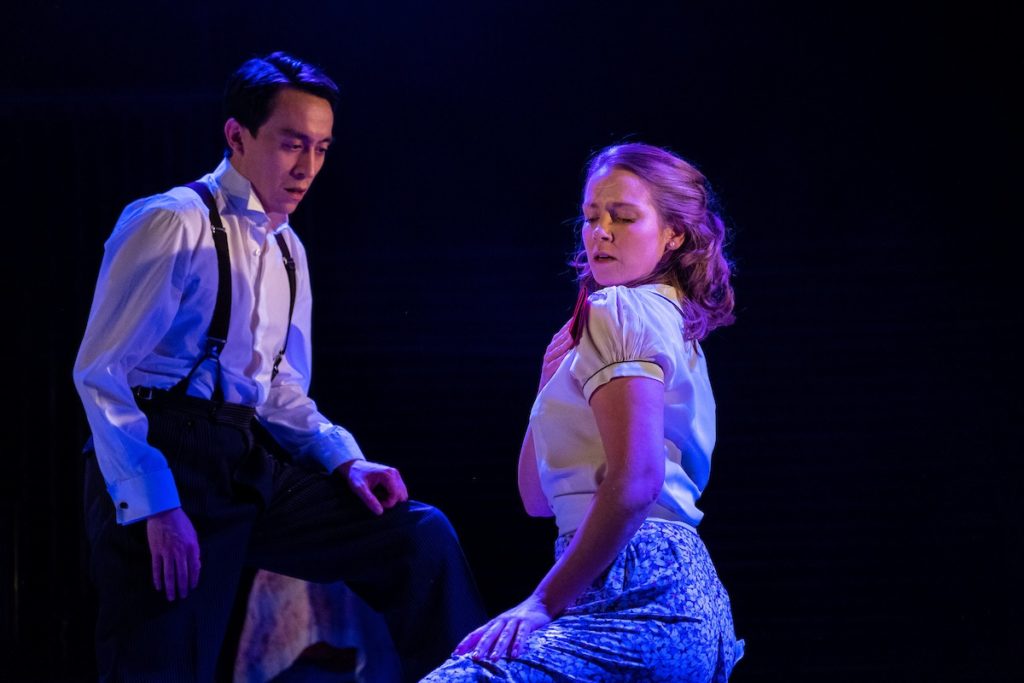
Miss Julie, New Earth Theatre and Storyhouse, Chester, York Theatre Royal, The Love Season, 8pm tonight; 3pm, 8pm, tomorrow, then on tour. Box office: 01904 623568 or at yorktheatreroyal.co.uk
NEW Earth Theatre director Dadiow Lin is “not a fan of the original version” of Miss Julie, Swedish playwright August Strindberg’s once-banned, naturalistic tragedy of gender and class warfare.
Damned for misogynism, it remains a “problem play”, and yet fresh adaptations of this revolutionary work, full of psychological manipulation, lust and lies, keep emerging, no problem.
In 1995, Patrick Marber’s After Miss Julie re-located its psycho-sexual pas de deux to an English country house in July 1945, on the night of the Labour Party’s post-war landslide General Election triumph. In 2012, in South African director and playwright Jael Farber’s Afrikaans’ version, Mies Julie, it became an apartheid story in a remote, bleak farm in modern-day South Africa’s Karoo semi-desert.
A year later, for York company Hedgepig Theatre, Gemma Sharp moved the turbulent triangle of lust, power and betrayal from Midsummer Night’s perma-light Scandinavia to the bright lights, decadence and debauchery of the Jazz Age England.
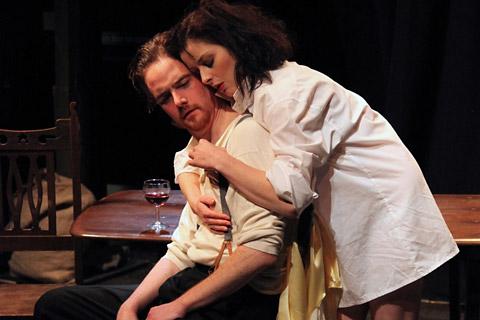
The 1920s, Sharp reasoned, were a time when sex before marriage was still frowned on, the class structure was rigid, and there was inequality for women, a status being challenged by the rise of the Suffragettes, the quest for female empowerment and the wearing-away of high society’s certainties.
Now, the ever-restless Miss Julie is on the move again, to the Orient, to post-war 1940s’ Hong Kong, back in British colonial hands after the surrender to the Japanese in wartime.
In British-Hong Kong playwright Amy Ng’s poetic, potent hands, it becomes politically as well as sexually charged, the chemical compound newly in danger of exploding with the extra measure of racial tension.
What had changed since the British 1920s for women and servants? Not much. The class structure was still rigid; inequality was still prevalent; high society was still high and mighty, titled and ever entitled; women and servants alike were expected to know their place.
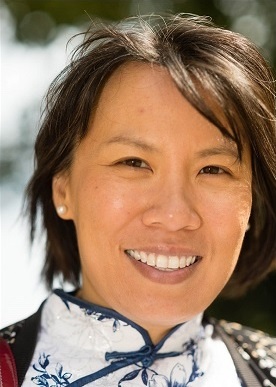
This applied as much to the British abroad, maybe even more so, and yet even though Hong Kong had been handed back to the Brits for reasons of “racial superiority”, the tentacles of Chinese Communism were reaching out in the shadows.
The British Governor General’s chauffeur, John (Leo Wan), now sees the British in a new light, weakened in their control, and he despises them for it.
Ng has retained the essence of the Strindberg storyline and three-hander structure, changing its setting, bolstering its topicality for the new Hong Kong, in its 21st century Chinese straitjacket, turning up the slow-burning heat in the cauldron of the servants’ hall amid the Chinese New Year celebrations.
Into the quietude of the party preparations of cook Christine (Jennifer Leong) and her preening fiancé John gate-crashes the Governor’s unguarded yet repressed daughter, Julie (Sophie Robinson), nursing a damaged ankle (or so she says), having hit her party straps outside already, with the Governor elsewhere.
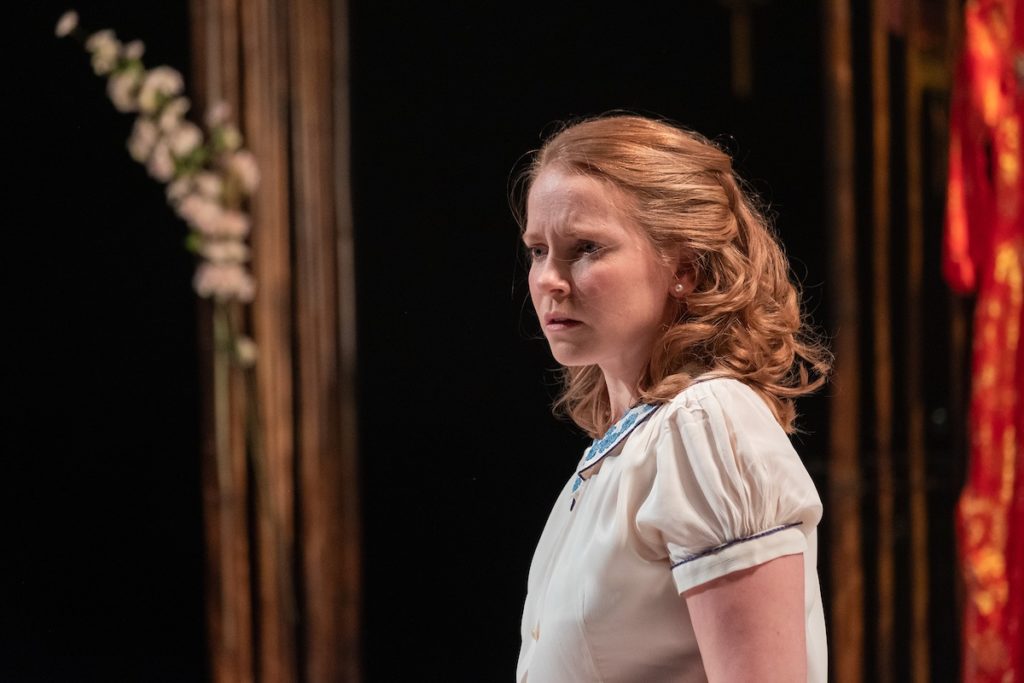
She brings in her caged canary (ah, symbolism, evoking Ibsen and Chekhov’s trapped lives); then notes the dead flowers in the decorations (ah, more symbolism) and proceeds to flirt, dance and plot brazenly with John, as a sexual game of chess is played under Christine’s scowling gaze from behind the bamboo canes of a kitchen lit with Chinese lanterns.
It takes three acts in 1879’s A Doll’s House for all hope of escape to be expunged; Strindberg’s candle burns out in one act, gone in 75 minutes. All that symbolism peaks with a Lion Dance, to signify their sexual fires, a conflagration that can lead only one way when the tide turns, as hierarchal contempt, rather than misogyny, plays its hand in the shift of power and female empowerment withers on a bitter vine.
In our era of Brexit and the open dislike of the UK (not only in that pointless Eurovision vote), Robinson’s Julie is the not-so-bright young Brit thing writ large in an earlier age but still familiar: spoilt, immature, blinkered, grand but needy, solipsistic, false, annoying, capricious, complaining. The question is why?
She is born to privilege, gifted with opportunities, but lacking judgement and parental guidance, she has no sense of purpose or direction; her world is precarious, doomed. Maybe that is the difference between entitlement and empowerment; here she lacks the tools within for the latter. Today, she would be on Made In Chelsea.
For all Robinson’s enticing performance, for all Ng’s soulful poetry and contemplative intelligence, this damaged-goods, volatile Julie is not the stuff of tragedy or shock. More a one-night stand with too much baggage.
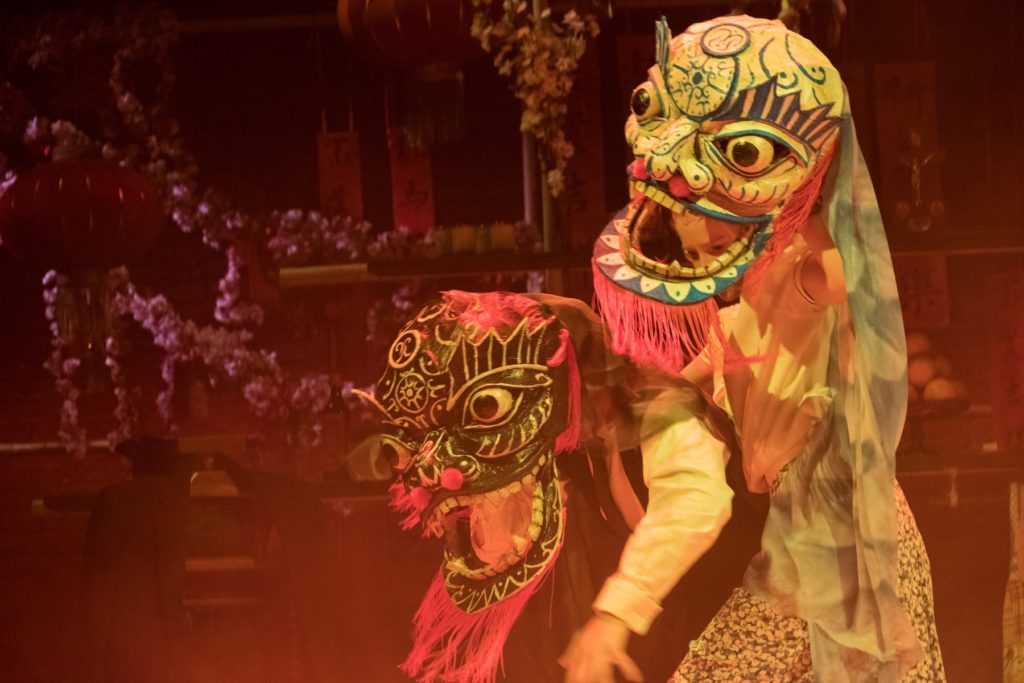
Wan’s John encapsulates the new vision of Ng’s version. He walks with a swagger, emboldened and ambitious, his contempt on the rise, while still polishing the British Governor General’s shoes and wanting to use the British to facilitate his Western wishes, tantalised by the prospect of becoming a hotelier.
Neglectful of Christine, ultimately dismissive of Julie, his ambivalent actions are embedded both in an abiding sense of presumed male supremacy and now a need to challenge the sense of racial “inferiority” that eats away at his subservience.
Like her pragmatic, deceptively calculating character, Leong’s Christine is less demonstrative amid the melodrama, the crash and burn around her, in the Freudian battle of the sexes.
Who should be given the final moment in Lin’s beautifully composed production but Christine, preparing herself for the new day’s work; nothing to see here, carry on. Some lives will always occupy that lane, picking up the pieces, but they are not the lives of self-destructive destiny that make the story, that draw us to the theatre, whether in Strindberg or Ng’s account.
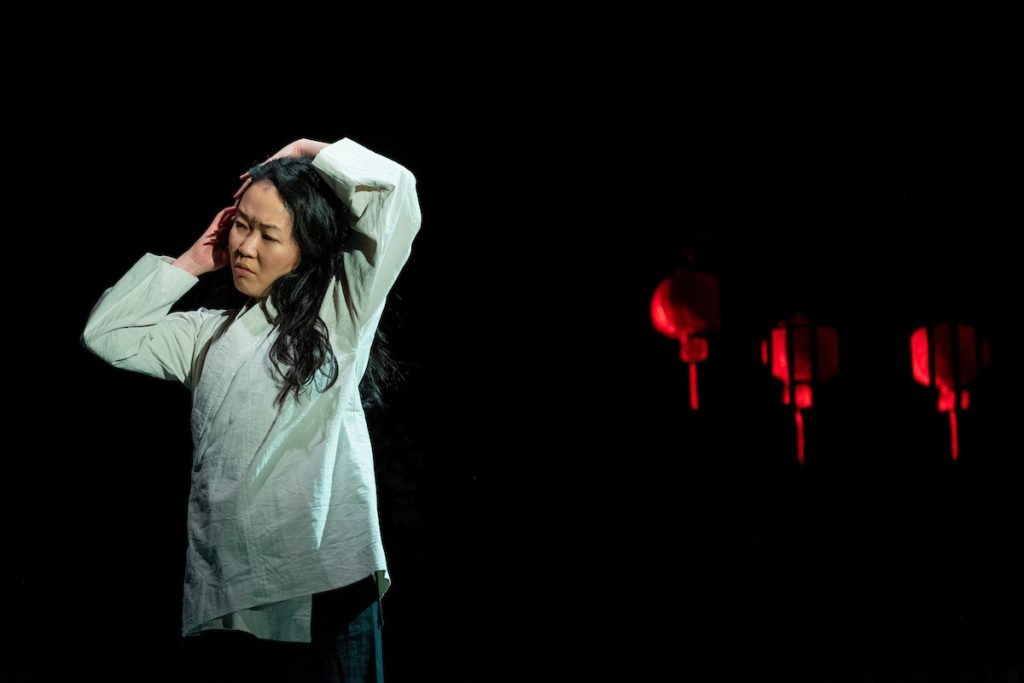
Review by Charles Hutchinson
